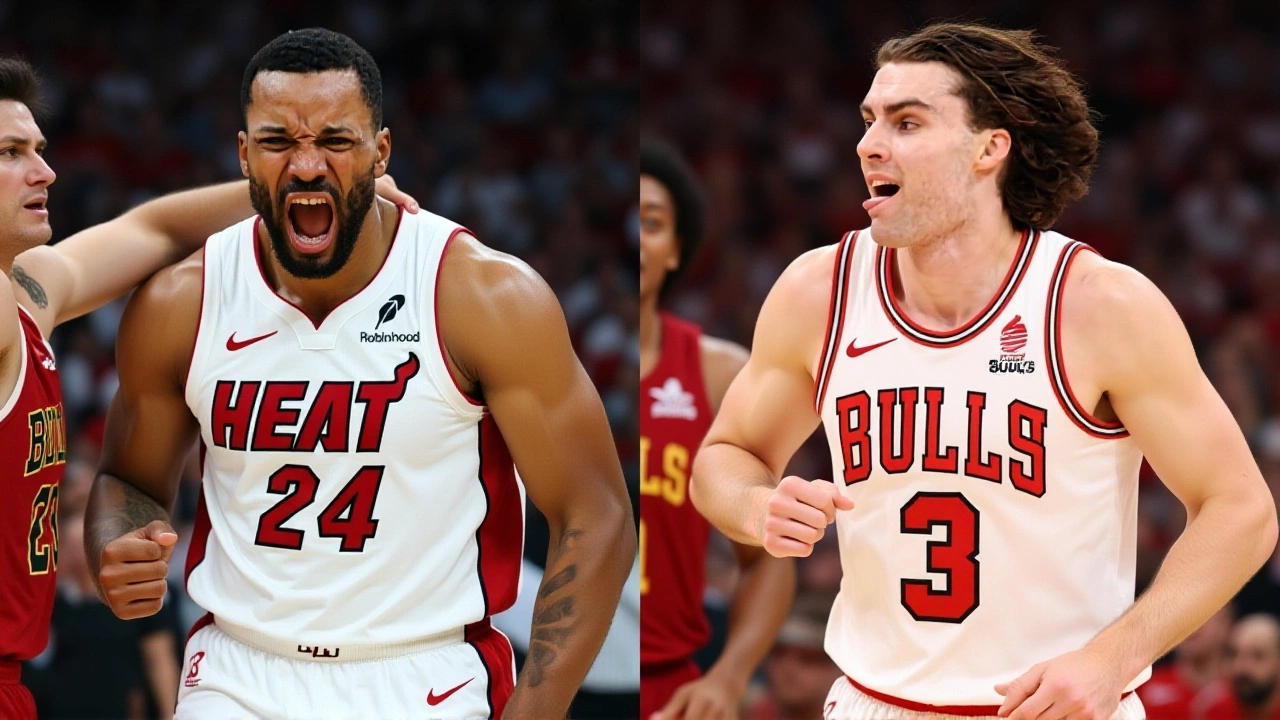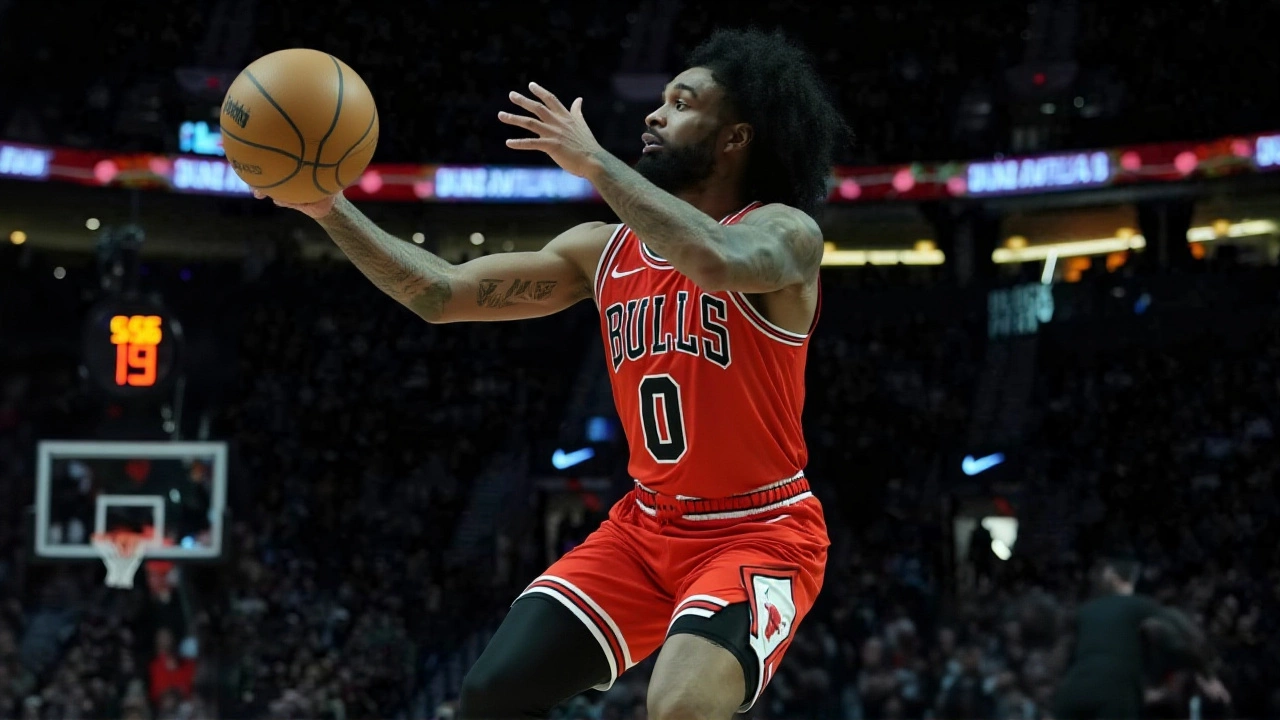Heat crush Bulls 143-107 as Kel'el Ware dominates with 20 points, 14 rebounds
 Nov, 22 2025
Nov, 22 2025
On Friday night, November 21, 2025, the Miami Heat didn’t just beat the Chicago Bulls — they dismantled them. In a jaw-dropping 143-107 rout at the United Center in Chicago, the Heat posted their fourth game this season scoring over 140 points — a number that matches their total from the previous seven full seasons combined. At the center of it all was 21-year-old center Kel'el Ware, who turned heads with 20 points and 14 rebounds, playing with a physicality that left Chicago’s frontcourt scrambling. This wasn’t just a win. It was a statement.
How Miami’s offense became unstoppable
The Heat entered the game averaging an NBA-best 124.8 points per game, but this performance felt different. They didn’t just score — they exploded. A 53-21 run spanning the final 8:30 of the first half turned a modest 18-11 Bulls advantage into a 25-point lead. By halftime, Miami had already dropped 82 points — the most they’d scored in a half all season. Norman Powell hit his mid-range jumpers with cold precision, finishing with 19. Bam Adebayo, the All-Star big man, added 18 points and anchored the defense, while guards Pelle Larsson and Davion Mitchell each chipped in 16. The ball moved like it had GPS. No one stood still. No one was left open.
For the Bulls, the game unraveled quickly. They opened strong, but once Miami’s offense clicked, Chicago’s defense looked like it was playing in slow motion. Their best player, Ayo Dosunmu, finished with 23 points — impressive, but not enough. Josh Giddey nearly notched a triple-double with 19 points, 11 rebounds, and nine assists, but his efforts were drowned out by the Heat’s relentless pace. Even Jalen Smith, who had been a bright spot for Chicago in recent games, could only manage 14 points.
The moment the game slipped away
The turning point wasn’t a buzzer-beater or a buzzer-beating steal. It was a moment of frustration — and a referee’s leg. Late in the third quarter, Bulls guard Kevin Huerter, already visibly agitated, waved his hand at the ball after a foul call went against him. The ball, still in motion, bounced off his fingers and struck referee Che Flores squarely on the leg. Flores immediately ejected Huerter for unsportsmanlike conduct. The crowd gasped. The Heat didn’t miss a beat. They went on a 12-2 run over the next three minutes, pushing the lead to 34 points. Huerter’s ejection wasn’t just a penalty — it was the final nail in Chicago’s coffin.
What this means for the NBA Cup standings
The win moved the Miami Heat to 2-1 in the NBA CupUnited Center, putting them just half a game behind the Milwaukee Bucks for top spot in East Group C. For the Bulls, the loss dropped them to 1-2, slipping into fourth place — a half-game behind the Knicks and just ahead of the Hornets. With only two group games left, Chicago’s playoff hopes are hanging by a thread. They need to win out and hope for multiple upsets just to make the knockout round.
Meanwhile, Miami’s offensive explosion has become the talk of the league. Scoring 140+ points four times this season? That’s unprecedented for a franchise that averaged just 108.2 points per game last year. Their ball movement, three-point shooting (they hit 18 threes Friday), and transition game have transformed them from a playoff contender into a potential conference powerhouse.

Behind the numbers: Why this loss stings for Chicago
The 36-point margin wasn’t just the largest deficit the Bulls have faced this season — it was more than double their previous worst (25 points against the Knicks on November 2). And it wasn’t just about the score. Chicago’s bench scored just 22 points. Their assist-to-turnover ratio was 19-15. They shot 41% from the field and a dismal 29% from three. They lost the rebound battle 51-43. They didn’t just lose — they looked unprepared, outcoached, and outclassed.
And here’s the twist: the Bulls were 5-4 in Eastern Conference games coming in. They’d won close games. They’d battled back from deficits. But against Miami’s speed and depth, they had no answers. The Heat didn’t just outscore them — they outplayed them in every phase.
What’s next for both teams?
Miami’s next two NBA Cup games are at home against the Orlando Magic and the Atlanta Hawks — both winnable, but not guaranteed. If they win both, they’ll likely clinch the group and advance to the knockout rounds as the top seed. Their offensive rhythm is contagious. Watch for Kel'el Ware to get more touches — he’s becoming the X-factor Miami didn’t know it needed.
For Chicago, the schedule doesn’t get easier. They host the Boston Celtics on November 25, then face the Nets and the 76ers in back-to-back road games. With their defense in shambles and confidence shaken, they need a miracle. Or at least a strong performance from Ayo Dosunmu and a return to defensive discipline.
Frequently Asked Questions
How significant is Kel'el Ware’s performance for the Miami Heat?
Ware’s 20-point, 14-rebound game is a breakout moment. As a second-year center, he’s shown he can dominate inside without relying on high-volume shooting. His efficiency (8-of-11 FG) and rim protection are critical for Miami’s transition game. This performance signals he could become their starting center long-term, especially if Bam Adebayo’s minutes are managed in the playoffs.
Why did the Bulls collapse after such a strong start?
Chicago’s early 18-11 run was fueled by aggressive drives and Miami’s slow defensive rotations. But once the Heat adjusted — switching more, closing out on shooters, and forcing Chicago into contested mid-range shots — the Bulls had no Plan B. Their offense became stagnant, and their bench failed to provide energy. The ejection of Kevin Huerter also removed their only reliable three-point threat off the bench.
Is Miami’s offensive explosion sustainable?
Yes — and here’s why. Miami’s top six scorers all averaged over 15 points per game in this game. Their ball movement (34 assists) and spacing (18 threes) suggest a system, not a fluke. With head coach Erik Spoelstra emphasizing pace and player autonomy, this isn’t just talent — it’s execution. They’re playing like the 2020 Lakers on steroids, and their depth makes them dangerous in the playoffs.
What does this mean for the NBA Cup bracket?
Miami is now the clear favorite in East Group C. A win in their next two games locks them into the top seed. The Bucks still hold the edge, but if Miami beats Milwaukee in their final group game, they’ll take the top spot. For Chicago, missing the knockout round would be a major setback — especially after their strong start to the season. It could force front-office changes before the trade deadline.
Was the ejection of Kevin Huerter justified?
Technically, yes. The NBA rulebook considers any intentional contact with an official — even accidental — as unsportsmanlike conduct. Huerter’s gesture, while likely not malicious, was reckless. Referees are trained to protect themselves from any perceived threat. Still, the timing was brutal for Chicago. The ejection shifted momentum and exposed how emotionally fragile the Bulls have become under pressure.
How does this game compare to past Heat-Bulls matchups?
Historically, these games were physical, low-scoring battles — think 2013 playoffs, when the Heat beat Chicago in six games. This was a complete departure: a fast-paced, high-scoring clinic. The 36-point margin is the largest in the series since 1997. It reflects how much the NBA has changed: from half-court grind to transition chaos. Miami’s style now overwhelms Chicago’s traditional, slower approach.